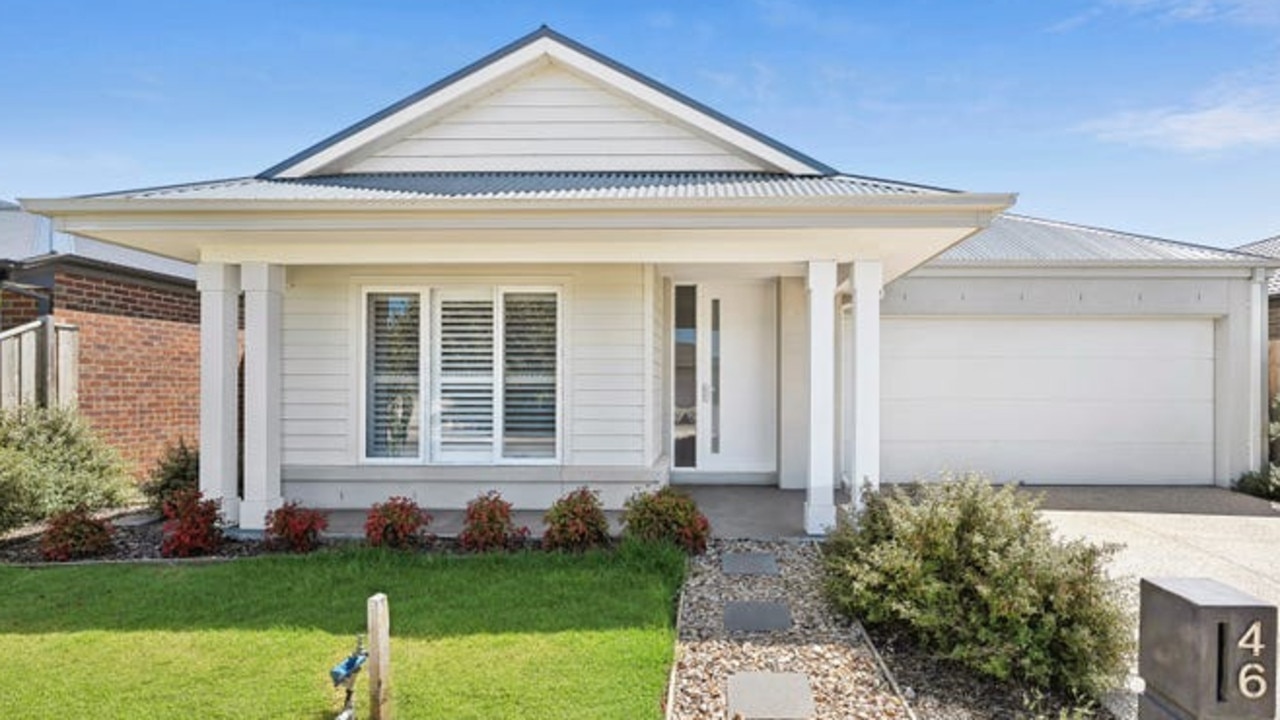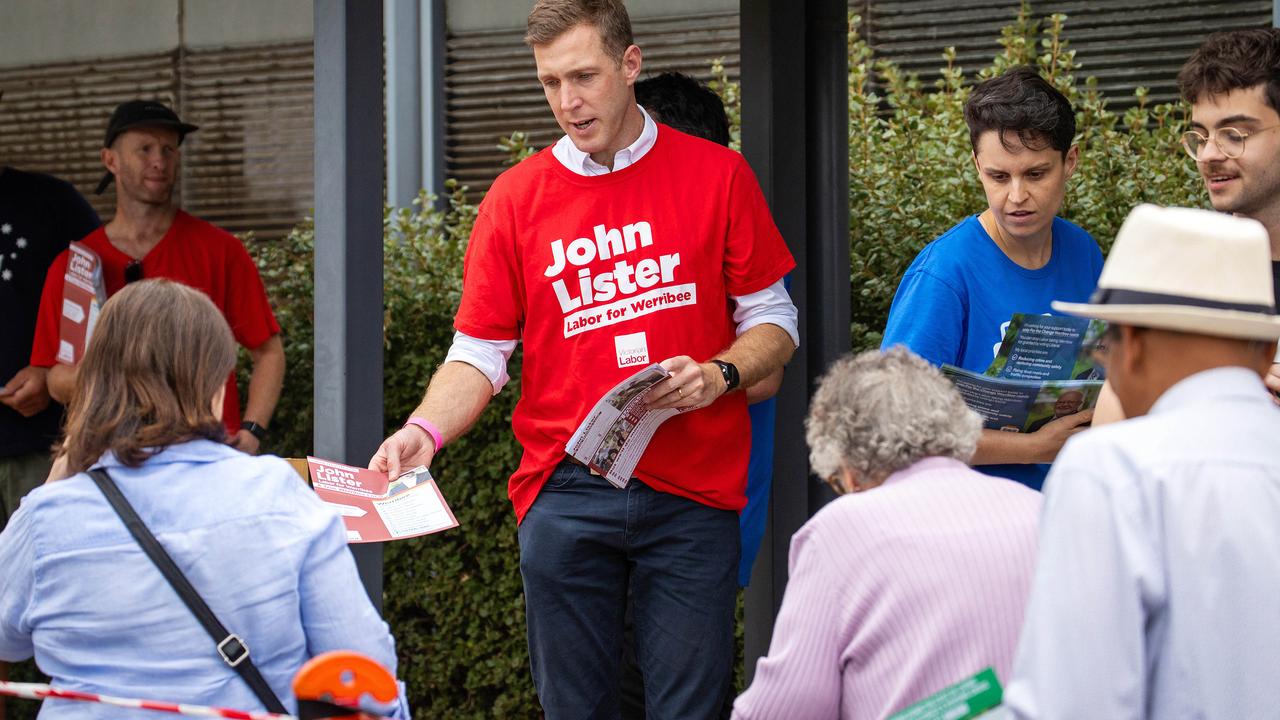Scott Morrison’s ‘disappointing’ G7 summit meeting made way for nuclear submarine fleet plan
When ScoMo didn’t snag a one-on-one with Biden during the G7 summit, it was seen as a snub, but the meeting is now an important moment.
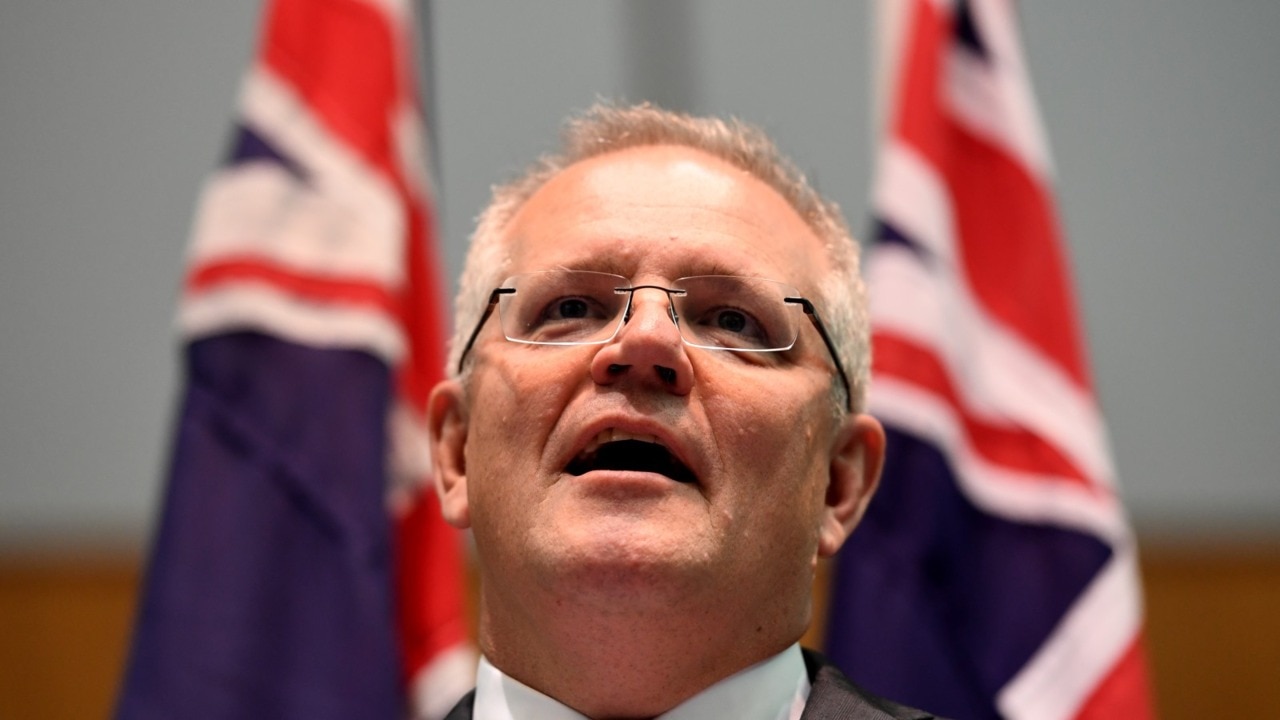
News
Don't miss out on the headlines from News. Followed categories will be added to My News.
Two’s a party, three’s a crowd. So it seemed for Scott Morrison on the sidelines of the G7 summit in June, when his first meeting with Joe Biden was not a private chat with the US President, but a surprise three-way discussion with their British host Boris Johnson.
Morrison maintained the trilateral was his idea, even boasting that their talks went for twice as long as they had planned.
But Labor wasn’t convinced. Foreign affairs spokeswoman Penny Wong said the apparent snub was “disappointing”, and that Morrison needed to reflect on whether his “stubborn refusal to do the right thing on the climate is delivering for Australia at home and overseas”.
As it turns out, the PM delivered in spades. Senior government sources say that meeting in Cornwall now ranks as perhaps the most important trilateral involving Australia for 70 years.
It was in there, in a seaside hotel conference room, that Morrison, Biden and Johnson struck an in-principle agreement to create AUKUS.
The next time the three leaders were seen together was on Thursday morning, when they beamed in from Canberra, Washington and London to announce what Morrison later described as a “forever partnership for a new time between the oldest and most trusted of friends”.
As with any good friends, they had already proven they could keep a secret.
AUKUS was Morrison’s idea, dreamt up as he investigated whether Australia should and could have a nuclear submarine fleet. About 18 months ago, as the pandemic began and China’s assertiveness sharpened, the PM launched a top-secret task-force to answer those equally important questions.
The “should” was more straightforward. Last July, based on the rigorous work of Australia’s defence and security agencies, Morrison released a new strategic defence policy which he said “ensures that the Indo-Pacific is front of mind for our ADF and is prioritised in the decisions we make on our deployments and our force structure and capabilities”.
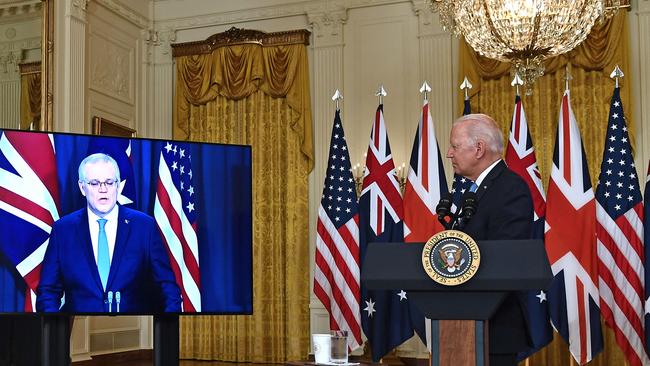
The 68-page document only mentioned China seven times, but its intent was clear: to focus on protecting Australia’s interest in our backyard, not in deserts in the Middle East.
“The Indo-Pacific is the epicentre of rising strategic competition,” Morrison said at the time.
“The risk of miscalculation — and even conflict — is heightening.”
As for the “could”, this was complicated. In 2016, Morrison’s predecessor Malcolm Turnbull unveiled a $50bn order for 12 submarines from France to be built in Adelaide. The design involved converting an existing French nuclear-powered submarine into a diesel-powered boat.
Senior government sources say nuclear submarines were not an option at the time, unless Australia was willing to establish its own domestic nuclear power capacity — a red line the government was not willing to cross.
This is where AUKUS came in. Morrison, together with Defence Secretary Greg Moriarty and Chief of the Defence Force General Angus Campbell, set about examining whether they could acquire a nuclear submarine capability from the US. Since 1958, when the Americans agreed to share their technology with the Brits, no other country had landed such a deal.
At first, these discussions happened between defence leaders, and it became clear that Australia’s allies could deliver subs that never needed to be refuelled, meaning onshore nuclear reactors were not required.
Morrison never raised the issue with Donald Trump, despite his efforts — which were controversial in Labor’s view — to build a close personal relationship. There were concerns in Canberra about how this would impact the PM’s ability to work with Biden.
By April this year, Morrison was ready to raise AUKUS and the nuclear subs at a political level with Biden and Johnson. The plan was on.
But there was one more hard conversation which needed to be had. After the G7, Morrison flew to Paris to meet French President Emmanuel Macron, where he wined and dined at the Elysee Palace.
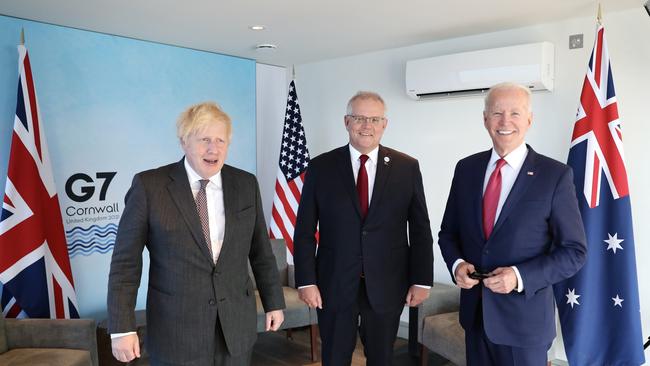
It was, according to those in the know, a lengthy and candid discussion in which Morrison made it clear that the conventional French submarines were no longer likely to meet Australia’s new-found need for greater endurance, power and stealth.
On Wednesday night, Morrison called Macron to confirm his decision. Macron was not pleased, to say the least. But the call did not last all that long, as Morrison had to hit the phones to inform a series of regional leaders of Australia’s strategic step-change.
The one conversation Morrison didn’t have was with Chinese President Xi Jinping, who has Australia in a diplomatic deep freeze.
“Australia remains open to discuss these and all issues that are important to the Indo-Pacific,” the PM said on Thursday.
“I believe and hope we would both share the same objective of a peaceful Indo-Pacific, where the sovereignty and independence of nations is understood and respected.”
Only time will tell if Morrison’s hope is misplaced.



